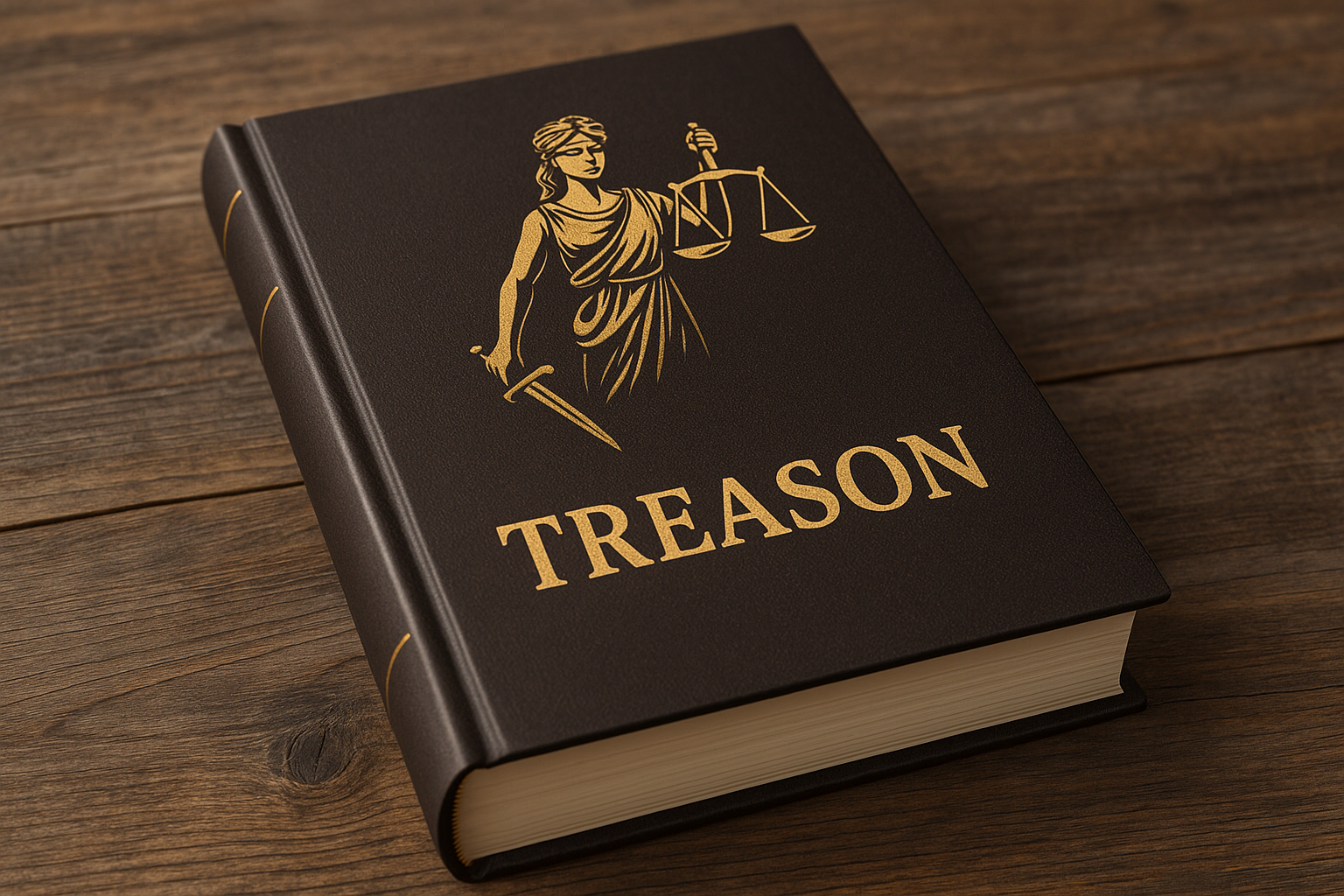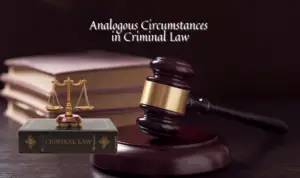Treason is universally recognized as one of the gravest crimes against the State. In the Philippines, Article 114 of the Revised Penal Code (RPC) defines and penalizes treason, reflecting the State’s paramount interest in preserving its sovereignty and security. This blog post provides a comprehensive analysis of Treason in Philippine Law as defined and penalized under Article 114 of the code, its elements, penalties, procedural safeguards, and relevant jurisprudence.
Treason under Article 114 of the Revised Penal Code
Constituting one of the most serious crimes under Philippine criminal law, it directly undermining the State’s sovereignty and security. Article 114 of the Revised Penal Code characterizes treason as the act of waging war against the Philippines or providing support or solace to its adversaries. This section pertains to Filipino citizens regardless of their location, as well as to resident foreigners who perpetrate acts of treason within the Philippines.
The law mandates stringent punishments for treason, including reclusion perpetua or execution, along with a fine not exceeding ₱4,000,000 for Filipino offenders. Resident foreigners convicted of treason incur a somewhat reduced penalty of reclusion temporal to death, accompanied by a monetary fine. These sanctions emphasize the gravity of treachery against the nation.
The Constitution and the Revised Penal Code establish stringent evidentiary standards to prevent wrongful convictions for treason. A conviction cannot be based on mere suspicion or broad assertions. The law mandates the testimony of a minimum of two witnesses to the same overt act, or a confession rendered in open court. This protection acknowledges that treason charges are frequently politically sensitive and susceptible to abuse.
Treason, as defined in Article 114, encapsulates the State’s determination to safeguard itself against betrayal while upholding impartiality in prosecution. It acts as a solemn reminder of the obligation of loyalty that every citizen owes to the Republic of the Philippines.
Treason in Philippine LaW
“Art. 114. Treason.—Any Filipino citizen who levies war against the Philippines or adheres to her enemies, giving them aid or comfort within the Philippines or elsewhere, shall be punished by reclusion perpetua to death and shall pay a fine not to exceed Four million pesos (₱4,000,000).
No person shall be convicted of treason unless on the testimony of two (2) witnesses at least to the same overt act or on confession of the accused in open court.
Likewise, an alien, residing in the Philippines, who commits acts of treason as defined in paragraph 1 of this article shall be punished by reclusion temporal to death and shall pay a fine not to exceed Four million pesos (₱4,000,000).”1
Elements of Treason
To secure a conviction for treason under Article 114, the prosecution must establish the following elements:
- Owed Allegiance to the Government
The offender must be a Filipino citizen or an alien residing in the Philippines, thus owing allegiance to the Philippine government. - Levying War or Adhering to Enemies
The accused must have:- Levied war against the Philippines, or
- Adhered to her enemies, giving them aid or comfort.
- Overt Act
The act must be overt, not merely an intention or plan. - Proof by Two Witnesses or Confession
No person shall be convicted of treason unless:- On the testimony of at least two witnesses to the same overt act, or
- On confession of the accused in open court.
These requirements are strictly construed, given the severity of the penalty and the potential for abuse in politically charged times.
Penalties for Treason
- For Filipino Citizens:
Reclusion perpetua to death and a fine not exceeding ₱4,000,000.2 - For Resident Aliens:
Reclusion temporal to death and a fine not exceeding ₱4,000,000.3
These penalties reflect the gravity of betraying the State, with the law imposing the harshest punishments available under Philippine criminal law. The death penalty, however, is currently suspended in the Philippines.
The Two-Witness Rule
A unique and critical safeguard in treason prosecutions is the “two-witness rule.” This rule requires that at least two witnesses testify to the same overt act of treason, or that the accused confesses in open court. This is designed to prevent wrongful convictions based on weak or fabricated evidence.
“No person shall be convicted of treason unless on the testimony of two (2) witnesses at least to the same overt act or on confession of the accused in open court.”
Jurisprudence on Treason
People v. Basilio (1950)
In People vs. Basilio (1950), the Supreme Court affirmed the conviction of Gavino Basilio for treason, emphasizing the necessity of the two-witness rule and the requirement that the overt act must be clearly established:
“FOR ALL THE FOREGOING, this Court finds appellant Gavino Basilio guilty of the crime of treason on two counts, with the mitigating circumstance of lack of instruction in his favor. … The penalty, therefore, provided by Article 114 of the Revised Penal Code should be imposed in its median period, namely, reclusion perpetua. With this modification, the judgment of the People’s Court is hereby affirmed, with costs.”4
The Court also discussed aggravating and mitigating circumstances in the imposition of penalties for treason.
People vs. Menor (1950)
In People vs. Menor (1950), the Supreme Court affirmed the conviction of Amado Menor for treason. The case is significant for its discussion of the evidentiary requirements and the application of mitigating circumstances:
“Amado Menor was charged before the People’s Court with the crime of treason on five counts… The People’s Court found him guilty of treason under those counts and, taking into consideration the attendance of the mitigating circumstance of lack of education, sentenced him to 14 years, 8 months and 1 day of reclusion temporal, with the accessory penalties of the law, to pay a fine of P7,000 and the costs.”5
The Court emphasized that the prosecution must present at least two witnesses to the same overt act, in accordance with Article 114 of the Revised Penal Code (1930), and that all elements of treason must be clearly established.
Adherence and Aid/Comfort
People vs. Abatayo (1950)
In People vs. Abatayo (1950), Doroteo Abatayo was convicted of treason for collaborating with the Japanese during World War II. The Supreme Court affirmed the conviction, finding that the evidence established his participation in enemy patrols and his role in the capture of guerrilla fighters:
Doroteo Abatayo was accused of treason for adhering to the enemy and giving aid and comfort to the Japanese during World War II. He was convicted based on evidence that he participated in a Japanese patrol, helped in the search for guerrilla men, and contributed to the capture and eventual disappearance of two guerrilla men. The above facts were proven by the testimony of Teotima Abellanosa and Gloria Abellanosa. The court affirmed the judgment of guilt and sentenced him to fifteen years of reclusion temporal, a fine, and court costs.6
Similarly, this case illustrates the application of the two-witness rule and the necessity for clear, direct evidence of overt acts constituting treason.
People vs. Sortijas (1951)
The Supreme Court clarified that criminal intent and adherence to the enemy can be inferred from the overt acts of giving aid and comfort. The Court stated:
“Criminal intent may be deduced not only from the testimony of witnesses but also from the nature of the overt act proved… the actual giving of aid and comfort, unless induced by compulsion or duress, is also proof of treasonable intent or hostile designs. There being no proof of appellant’s acting under compulsion or duress… those same acts show appellant’s adherence to the enemy and manifest intention to betray his country.”7
People vs. Hernandez (1956)
The Court emphasized that both adherence and giving aid and comfort must concur for treason to exist:
“Under the Philippine treason law… there must concur both adherence to the enemy and giving him aid and comfort. One without the other does not make treason.”8
The Court further explained that the overt act (e.g., murder, physical injuries) is not a separate offense when it is the means by which aid and comfort are given to the enemy.
People vs. Paar (1950)
The Court found that the act of giving information to the enemy constitutes both giving aid and comfort and shows adherence:
“The very act of giving information to the enemy, constitutes not only giving aid and comfort, but also shows adherence to the enemy.”9
People vs. Menor (1950)
Participation in acts such as arresting guerrillas was held to constitute both adherence and giving aid and comfort:
“The active participation of this appellant in the zoning in question and the subsequent arrest of Ernesto Buenviaje and his disappearance and possible death by killing, undoubtedly constitutes the adherence and giving aid and comfort to the enemy, which constitutes the element of treason under Article 114 of the Revised Penal Code.”10
People vs. Caña (1950)
The Court discussed the seriousness of treason and the factors affecting the penalty, reiterating that the gravity of the acts of aid and comfort, and the degree of adherence, are central to the crime:
“Treason is not an ordinary and everyday offense… It is a very serious crime committed during war by one who, forgetting his loyalty and oath of allegiance to his own country, aids the enemy and gives it aid and comfort.”11
Historical Context and Application
Earlier versions of Article 114, as seen in the Revised Penal Code, prior to its amendments12, and even in the law denominated in part as an “Act Defining Treason….”13, similarly required the two-witness rule and defined treason as levying war or adhering to enemies. The jurisprudence has consistently required strict compliance with these procedural safeguards.
Comparison: Treason by Citizens vs. Aliens
Article 114 distinguishes between Filipino citizens and resident aliens:
- Filipino citizens are punished more severely, reflecting their higher duty of allegiance.
- Resident aliens may also be prosecuted for treason if they commit acts defined in Article 114, but the minimum penalty is lower (reclusion temporal).
Related Offenses
- Conspiracy and Proposal to Commit Treason:
Article 115 of the RPC punishes conspiracy and proposal to commit treason with lesser penalties. - Misprision of Treason:
Article 116 penalizes those who, having knowledge of treason, conceal it instead of reporting to authorities.
Policy Rationale
The rationale behind the severe penalties and strict evidentiary requirements is to balance the State’s need to protect itself against betrayal with the individual’s right to due process. Treason prosecutions often arise in times of war or national crisis, when passions run high and the risk of injustice is greatest.
Conclusion
Article 114 of the Revised Penal Code, as amended, remains a cornerstone of Philippine criminal law in safeguarding national security. Its strict elements, severe penalties, and procedural safeguards reflect the gravity of the offense and the need to protect both the State and the rights of the accused. Jurisprudence underscores the importance of the two-witness rule and the careful application of the law.
- Article 114, Revised Penal Code, as amended by RA No. 10951[↩]
- What are the Penalties for Treason?[↩]
- Ibid.[↩]
- People vs. Basilio, G.R. No. L-2238, May 11, 1950[↩]
- People vs. Menor, G.R. No. L-2237, January 31, 1950[↩]
- People vs. Abatayo, G.R. No. L-2315, December 29, 1950[↩]
- People vs. Sortijas, G. R. No. L-3216, September 18, 1951[↩]
- People vs. Hernandez, G.R. Nos. L-6025-26, July 18, 1956[↩]
- People vs. Paar, G.R. No. L-2318, March 31, 1950[↩]
- People vs. Menor, Supra.[↩]
- People vs. Caña, G.R. No. L-1678, November 10, 1950[↩]
- Act No. 3815 [1930][↩]
- Act No. 292 [1901][↩]




